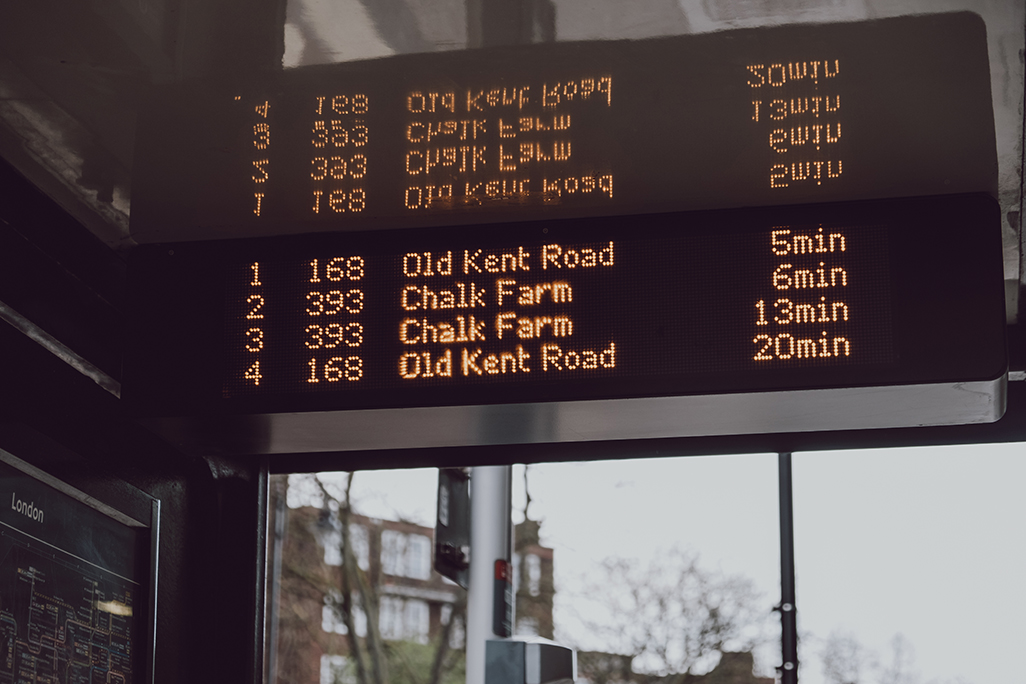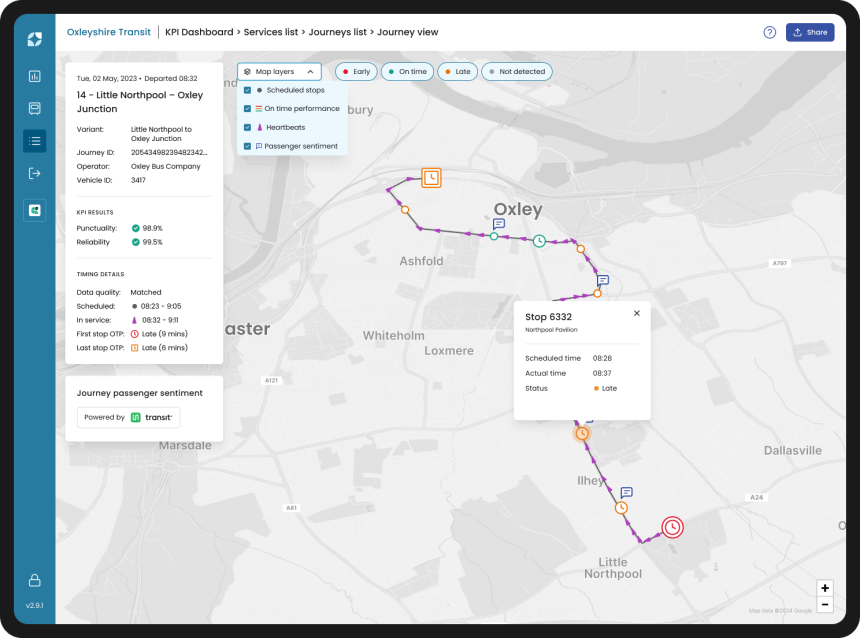Miki Szikszai’s passion for public transport is easy to detect. Visiting the UK from his native New Zealand during Catch the Bus month in September, the Snapper Services CEO is keen to talk about the ideals which are promoted by that Bus Users UK initiative.
“There’s so much that has been done and more that needs to be done to make sure that buses remain a societal connector,” he says. “I travel on the bus a lot and it always warms my heart to see the range and diversity of users. It is often underappreciated that it is people’s lifeline. We’re big supporters of anything that can be done to improve that accessibility and continue to [ensure] the social value of these transport networks.”
Thus sums up a goal of Snapper Services, which is aimed at empowering operators and transport authorities to use data to improve their networks. Its Mosaiq platform — used by more than a dozen local authorities in the UK — is designed to help “make sense” of the numbers which their operations are producing.
The value of reliable data
The importance of good data is explained by Miki, who has been at the helm since 2009 and has more than 25 years’ experience in the public transport industry. He has seen legacy systems which result in pieces of data “locked up in silos” and says the result is operators and authorities not trusting what they see. “It makes it very hard to get all of the people who are involved in delivering a great bus service on the same page,” he says.
With Mosaiq processing a claimed billion “heartbeats”, or data points, a month from transport systems all over the world, Miki says: “We’ve got the ability to help people understand what’s going well and what’s not going well and where you need to put your effort into improvement.”

He adds that one benefit of Mosaiq is in enabling operators and authorities to move into a mode of continuous improvement. “What we’re advocating for,” he says, “is taking the time to become much more evidence-driven in your improvements and step out of the mode of making big changes every three to four years to [instead] try to make 1% improvements every week.”
The value of Bus Open Data Service in England is well appreciated by Miki, who commends the government’s foresight on leading on it. One of the smaller issues at the moment in his view, however, is that the data from buses is in some cases becoming patchy due to the country’s 3G networks being turned off, leading to reliance on much slower 2G.
Data and franchising
Mosaiq’s data insights have been particularly useful as mayoral authorities consider bus franchising, according to Miki. He is an advocate for franchising in the right conditions, having witnessed what it achieved in parts of New Zealand after Snapper Services was heavily involved in the processes towards that.
However, he warns that franchising is full of potential pitfalls, the biggest challenge being transitioning away from commercial services, when an overnight downturn in performance can sometimes result.
We’ve got the ability to help people understand what’s going well and what’s not going well and where you need to put your effort into improvement
On those teething problems, he says: “We’ve seen this a lot — [authorities saying] ‘We’re going to make this change, here’s where we are and here’s where we’re going to be and it’s all going to magically happen.’ But that transition is complex, there are a lot of moving parts and a lot of really important communication with all stakeholders to do.”
Further with regards to making sure that post-franchising transition runs smoothly, he speaks of the importance of “making sure that every party has the same picture of what is going on”, which is what Mosaiq is designed to assist with.

He says: “We’ve seen examples where the operator has one set of data and an authority has another set of data and then they spend their time arguing about whose data is good as opposed to what happened.”
Miki also says that a cause of franchising failing has been a tendency, once it is in place, to “think it’s a step away from partnership and to more of a contractual-type model”, emphasising instead the need to co-operate closely with all parties and get away from the blame game.
One of the complaints against franchising is that SMEs find it difficult to compete in the bidding process with much larger companies with significant financial resources. On a possible solution, he responds: “What we’ve seen in other markets is that sometimes the policy settings allow for direct appointment of either all or part of existing operators services.”
We don’t think that AI is ready to start making recommendations on what you should be doing with your network
Another issue is the length of time between the green light being given and the services beginning. He feels the government’s upcoming Better Buses Bill will assist in that, adding: “I think it’s around having very straightforward contracts.
“There will always be tendency to try and dot every ‘i’ and cross every ‘t’, but having contracts that are much more outcome-based as opposed to prescriptive means that the process takes less time and gives operators a chance to innovate. Those have been the types of things we’ve seen in other markets which seem to work well.”
AI and net-zero
Although conceding artificial intelligence (AI) can be useful in aiding productivity, Miki is sure of the place that humans will continue to play when it comes to planning networks.
He insists: “We don’t think that AI is ready to start making recommendations on what you should be doing with your network. There will always be a human planner who needs to make those choices.”
Further with an eye on the future, he argues that the role of reliable data in public transport is a big factor in sustainability aims. “I’m quite impressed with what the UK industry has done around net-zero, but I think one of the things which helps net-zero be achieved even faster is driving mode shift away from single-occupant vehicles onto public transit and that’s about focusing on making that service punctual and reliable,” he says.
Modal shift will need to be a generational change, says Miki, who is hopeful that Snapper Services can take a significant role in that. “If you get more people using public transit, there becomes a case to invest more in it, the service becomes better and better and, over time, you get a point where people say, ‘why do I have the second car?’ And as urbanisation increases and more and more people move into cities then I think people see the impact of lots of people in cars.”



























